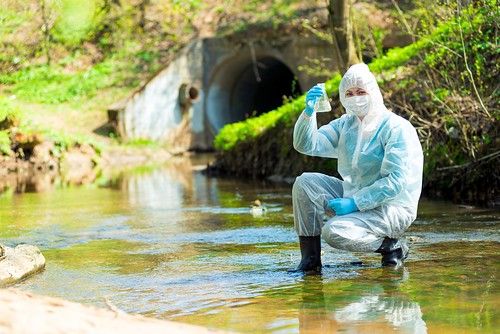When embarking on large-scale construction or development projects, businesses must navigate a maze of regulations and environmental requirements. One crucial step in this process is conducting an Environmental Impact Assessment (EIA). These assessments evaluate the potential effects of a project on the environment, ensuring compliance with environmental laws and promoting sustainable development. At the heart of successful EIAs are environmental consultants—professionals whose expertise can make or break the approval process environmental consultants.

In this post, we’ll explore the pivotal role environmental consultants play in delivering comprehensive and effective Environmental Impact Assessments and why their involvement is essential to a project’s success.
What Is an Environmental Impact Assessment?
An Environmental Impact Assessment is a formal process used to predict the environmental consequences of a proposed development before a project begins. It considers various factors, such as air quality, water resources, wildlife, noise, and even the social and economic impacts of a development.
The goal of an EIA is to ensure that developers and regulatory bodies are aware of any environmental risks early on, giving them the opportunity to mitigate those risks or adjust the project accordingly.
The Role of Environmental Consultants in EIAs
Environmental consultants are specialists with extensive knowledge of environmental regulations, policies, and the potential impact of projects on the environment. Their role in an EIA includes:
1. Project Feasibility Studies
Environmental consultants assist in determining the feasibility of a project from an environmental standpoint. They identify potential environmental challenges early in the planning phase and recommend measures to avoid costly delays or legal roadblocks. By assessing factors such as soil contamination, air emissions, and biodiversity impact, consultants help determine if the project can proceed or if alternative solutions should be explored.
2. Compliance with Environmental Regulations
One of the most important roles of an environmental consultant is ensuring that the project complies with local, state, and federal environmental regulations. These regulations can be complex, varying by location and the type of project. Consultants guide developers through the intricate legal framework, helping them meet the necessary requirements and avoid fines, legal action, or project shutdowns.
3. Data Collection and Analysis
Environmental consultants conduct thorough field studies to collect data on local ecosystems, water resources, air quality, and other critical factors. They use advanced technology and modeling tools to analyze this data, producing accurate and scientifically sound reports. This data-driven approach is essential in predicting potential impacts and offering recommendations to mitigate any negative effects.
4. Stakeholder Engagement
Engaging with local communities and stakeholders is a vital aspect of the EIA process. Environmental consultants often lead public consultations, helping to communicate the project’s impact transparently. By addressing community concerns and incorporating local feedback, they can foster goodwill and help the project gain public and governmental support.
5. Mitigation Strategies
Once potential environmental impacts are identified, environmental consultants develop mitigation strategies to reduce or eliminate those impacts. Whether it’s preserving natural habitats, improving water management, or reducing air emissions, these strategies are key to ensuring the project can move forward in an environmentally responsible manner.
Why Hire Environmental Consultants for Your EIA?
For developers, hiring environmental consultants is not just a matter of regulatory compliance—it’s about safeguarding their projects. Here are a few reasons why environmental consultants are indispensable:
- Expert Guidance: Environmental regulations are constantly evolving, and understanding them can be challenging. Consultants stay updated on changes to laws and policies, offering the most current advice to keep your project on track.
- Risk Management: Early identification of environmental risks can save time and money in the long run. Environmental consultants help mitigate potential issues before they escalate.
- Reputation Management: Developers who prioritize environmental responsibility demonstrate corporate social responsibility. This can lead to positive community relations and improve the project’s chances of success.
- Streamlined Process: Consultants can manage the complex, time-consuming aspects of EIAs, streamlining the process and reducing administrative burdens on developers.
Conclusion
Environmental consultants are the unsung heroes of successful Environmental Impact Assessments. Their expertise ensures that projects are not only compliant with environmental laws but also sustainable and responsible. By hiring an experienced environmental consultant, developers can ensure a smoother project approval process, reduce risks, and contribute to a healthier, more sustainable environment.